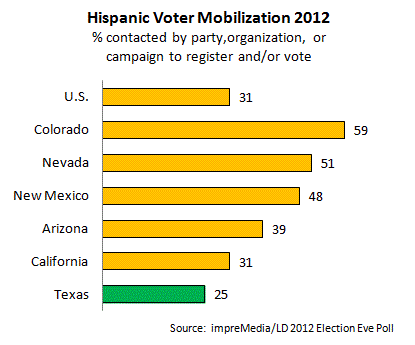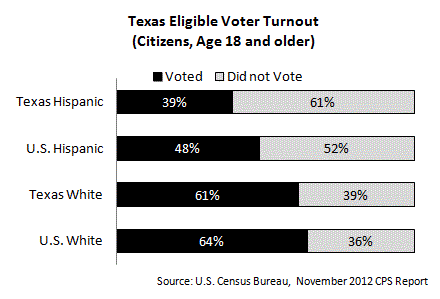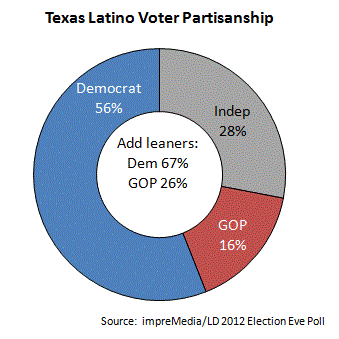State Senator Wendy Davis won the Texas Democratic Party gubernatorial nomination this week. There was never any doubt she would win, her only opposition was Corpus Christi Municipal Judge, and frequent candidate, Ray Madrigal. Even though Davis won with a landslide 79% of the vote, she lost in nearly every South Texas and border-area county with large Hispanic and Democratic electorates. This should give pause to the campaign as they begin to plot out and implement general election strategies.
Davis cannot compete, and the Democratic Party cannot move the needle in Texas without robust Latino support. The Valley, South Texas, and the border regions could be pillars of that support: Texas Hispanic voters support Democratic candidates at higher rates (than GOP candidates), and strongly favor the type of education policy solutions Davis is placing at the center of her campaign. But, as Democratic Lt. Governor candidate Leticia Van De Putte has said, Democrats cannot wait for the demographics to catch up.
The underwhelming performance in South Texas underscores the dire statewide need for Hispanic voter engagement. Last week we published a report that analyzed demographic and voter participation trends in Texas. In 2012, only 25% of Latino voters were contacted by parties, campaigns, or organizations to encourage their participation.

Hispanic Texans register to vote at lower rates compared to non-Hispanics in the state, and the national average for Hispanics. There are 2.9 million voting-eligible Latinos in the state who are not engaged in the electoral process. Once registered, Latinos turn out at relatively high rates — getting registration rates up is essential to closing the voter participation gap. Democrats must convert some of these non-voters in to their supporters if the party is to be competitive again.

A couple of facts should be taken into consideration when thinking about the South Texas results. By virtue of name alone, Madrigal would have seen a bump where there are large pockets of Hispanic voters. Several academic studies find Latino voters use surname cues to make vote choices, particularly in low-information elections, when voters are unfamiliar with the candidates. It is also important to bear in mind that in the largest counties Davis lost in her primary, she was far more successful with voters than Republican nominee, Texas Attorney General Greg Abbott was in his primary. In the big picture there are millions of Hispanic votes up for grabs, and Democrats remain very popular with Texas Latino voters.

Texas Republican elected officials and candidates have provided Democrats with a unique opportunity to capitalize on their aggressive anti-immigrant messaging, and condescending digs at the Latino community that have been on full display throughout the GOP primary. Republicans should knock it off already — they have big opportunities with Latino voters too, as we’ve discussed in this space. Ugly GOP tactics alone will not register or turnout Hispanic voters. If Democrats hope to benefit from the demographic shift underway (and Republicans effectively purging Latinos from their base), they must strategically invest to build relationships with more Hispanic voters, and re-build the state party.


